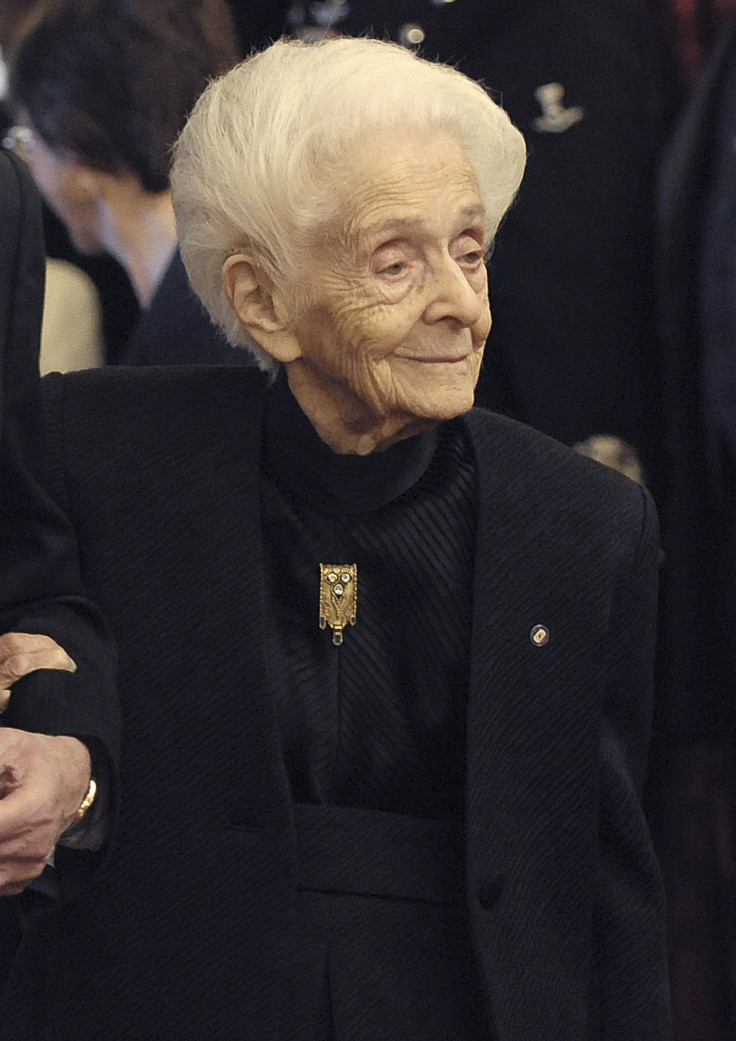Rita Levi-Montalcini, Nobel Prize Winner, Passes Away at 103

Dr. Rita Levi-Montalcini, who won the Nobel Prize in 1986, died on Sunday, 30 December, in Rome. She was 103 years old.
Levi-Montalcini shared the Nobel Prize for physiology or medicine with her colleague Stanley Cohen for their discovery of nerve growth factor (NGF). Her work in the field of dementia and cancer helped researchers understand the mechanism of the diseases.
"I don't use these words easily, but her work revolutionized the study of neural development, from how we think about it to how we intervene," Dr. Gerald D. Fishbach, a neuroscientist and professor emeritus at Columbia, told The New York Times.
Levi-Montalcini was born on April 22, 1909 in Turin, Italy. She and her sisters weren't allowed to choose professional careers as their father thought that it would interfere with their responsibilities as a wife and mother, she wrote in her autobiography. However, at 20 years of age Levi-Montalcini took up medicine and graduated summa cum laude from medical school with a degree in Medicine and Surgery.
She started her work on chicken embryos in a small research unit that she installed in her home during World War II as she couldn't pursue a career in research and medicine in Italy due to her non-Aryan Italian status. In 1941, she had to shift her laboratory to a country cottage after Turin was heavy bombarded by the Anglo-American air forces.
She later moved to Washington University in St. Louis where she, along with Dr. Viktor Hamburger, found that a protein is responsible for the growth of the nerves. The protein, when released by a cell, attracts nerve growth from the surrounding cells.
"A beacon of life is extinguished" with her death, said a niece, Piera Levi-Montalcini, reports the Associated Press. Dr. Rita Levi-Montalcini passed away peacefully "as if sleeping" after lunch, Piera Levi-Montalcini said.
Her death was announced by Rome's mayor, Gianni Alemanno, who called it "a great loss for all of humanity."



























